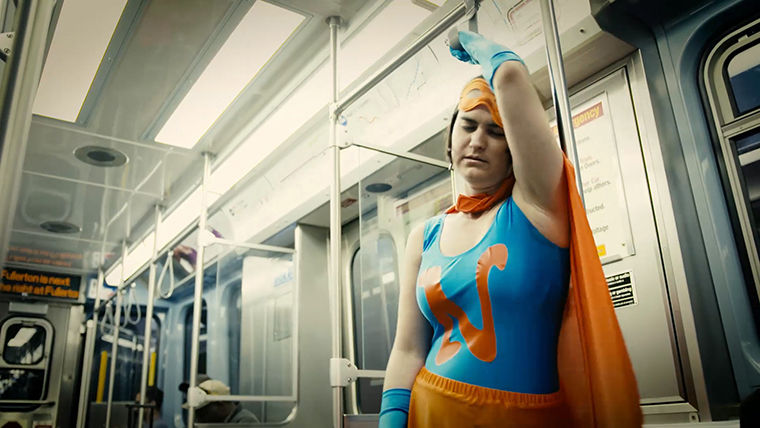Web series wakes audience to narcolepsy representation
March 3, 2018
Keelyn is an average, everyday Chicago-based superhero with the power to make bad guys and rude bartenders break into spontaneous dance with a snap of her fingers. However, unlike Wonder Woman or Supergirl, Keelyn has something on her plate besides saving the world. She struggles with narcolepsy.
This is the premise of “Super Narcoleptic Girl,” a scripted web series co-created by Chicago comedians Sarah Albritton and Catherine Povinelli that premiered Feb. 15. The show follows Albritton’s character as she battles low-level villains, assisted by her “primary,” or powerless sidekick, played by Povinelli.
The show was conceived over margaritas one night when Albritton told Povinelli of her own narcolepsy and Povinelli responded, “You would make the worst superhero ever.”
A week later, the two sat down to make that concept a reality.
According to to the National Institute of Neurological Disorders and Stroke, narcolepsy is a chronic neurological disorder that can cause excessive sleepiness, insomnia and cataplexy, or brief episodes of weakness and loss of voluntary muscle control. It’s often triggered by strong emotions such as fear or excitement.
Growing up, Albritton did not see narcolepsy represented as anything more than a throw-away joke, she said. There were no stories that had main characters with narcolepsy, so creating a show that offers that representation has been an exciting part of the process, she added.
“Representation really matters. When you’re growing up and you see someone on television like you, that changes how you feel about things,” Albritton said. “Seeing [narcolepsy] portrayed realistically and seeing somebody go through some of the situations that you experience, you don’t feel as alone. You feel like, ‘Oh, they get me, they understand me.’”
According to Povinelli, “Super Narcoleptic Girl” has garnered positive response from the narcoleptic community, with viewers from as far as Germany reaching out to thank the pair. Fans have expressed their appreciation for Albritton’s role as both a producer and star of the show.
As creators who are not based in entertainment hubs like Los Angeles or New York City, Albritton and Povinelli have found the web series to be a strong outlet for their content, and hope it can act as a stepping stone.
According to Brent Kado, adjunct professor in the Cinema and Television Arts Department, YouTube is a strong “starting point” for creators to release their content and build an audience.
Ideally, Albritton hopes to pitch “Super Narcoleptic Girl” to a studio as a full series, but she said both she and Povinelli would be excited if the show helped them get management or representation, or amassed enough attention to help fund a second season.
“We have so many more episodes we were unable to shoot this season,” Albritton said, “and much more story we want to tell with these characters.”








